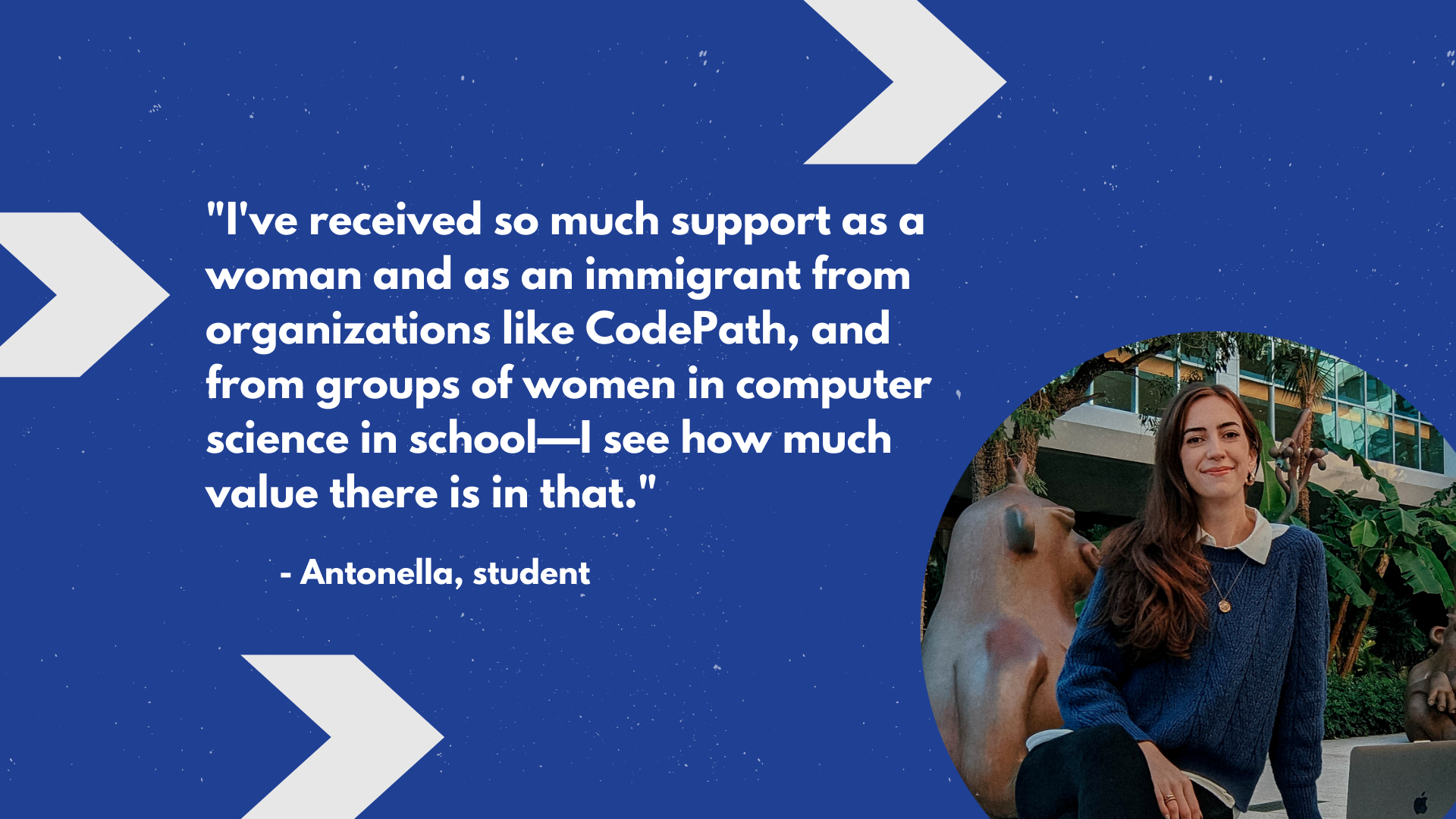Student Spotlight: Using Creativity and Connection to Overcome Isolation

Antonella, 29, can summarize her early days as a computer science major and self-taught coder in one word—isolated.
For starters, she was a fashion designer by trade, someone more accustomed to creating designs for brands than writing algorithms. Most of her friends, like Antonella herself, were students at Broward College in South Florida. But, they were studying nursing, not technology—so she rarely found herself in the company of coders.
Then there was her background—she’s a woman born and raised in Argentina. When Antonella saw computer engineers depicted in movies and television shows, they never looked like her.
“The mental notions that I had were all very male-driven,” she said. “It was usually a dude with a hoodie hacking in a basement. I felt like, ‘engineering and computer science—I don't know if this is for me. I don’t know if I have what it takes to make the cut.’”
In early 2020, Covid arrived just two months after she transferred to Florida International University (FIU) in Miami to continue studying computer science. As her classes shifted online, her sense of isolation only grew.
“Usually, you would sit with other classmates in the classroom itself, bouncing ideas off someone who would help you,” she said. “But it was just screens with a bunch of black squares. It made it harder to find those communities.”
Then a student she admired—the director of the Women in Computer Science group she had joined at FIU—suggested that she enroll in CodePath’s free Technical Interview Prep Course. The 12-week summer program helps tech majors prepare to solve challenging algorithmic problems in whiteboard and coding interviews with companies looking to hire interns.
She and her cohorts took the course remotely, teaming up in “pods” to solve coding problems and take part in mock interviews. They also learned about common patterns internship candidates are often asked to solve during those interviews.
The CodePath experience convinced her that her work in fashion and graphic design was an asset. She realized she could easily access the creative half of her brain even while she was immersed in the dense, logical realm of data structures and algorithms—it’s how she creates solutions to make programs run faster or take up less memory.
The CodePath course also connected her to other students from underrepresented communities, which helped her finally see herself as a coder. She found other Hispanic women in the new online community, which alleviated her sense of isolation.
By the end of the course, Antonella no longer questioned whether she belonged in a computer science field. In fact, she started solving more and more code problems in her down time, building on what she learned in the course.
“It validated the fact that maybe there is a place for me,” she said. “I started seeing a lot more diversity than I was seeing the media show and what the perceived notions were of the field.”
Not long after she finished the program, she landed an offer for a summer internship with Microsoft, which she completed in 2021. Since then, she has recommended the Technical Interview Prep Course to several classmates.
Today, Antonella is continuing her studies at FIU and has plans for a future as a software engineer. But that’s only her short-term goal. Her dream is to create a foundation to support Hispanic women who are finding it difficult to enter or persist in the computer science field.
Seeing first-hand CodePath’s passion, drive and impact—which she said goes well beyond just teaching people to code—has inspired her to make sure people like her don’t feel isolated going into a computer science field.
“I've received so much support as a woman and as an immigrant from organizations like CodePath, and from groups of women in computer science in school, that I see how much value there is in that,” she said. “And I feel badly for the ones who don't get to experience it.”